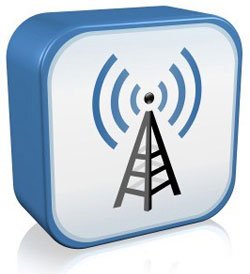
The Internet is everywhere. It’s now a part of our lives much like food and water. One of the major changes in how we use the web is the implementation of home wireless networks. More and more people have installed wireless routers in their homes to free themselves from old style fixed Internet service giving them access via any wireless capable device, such as laptops and even mobile phones. However, as network owners are able to be online, so can anyone within a certain distance making network security a priority. It might sound like a hassle but the answer to the question of protecting a home network is a resounding yes.
Wireless networks vulnerabilities
Should you password protect your wireless network, it is best to first understand how it works and how open networks get exploited. Wireless networks broadcast a signal that devices can pick up. There are usually two basic security settings, the network identification or the SSID, and passwords. Most users don’t take advantage of them for the simple reason of convenience. Commonly not set or given unique enough names, the Network ID is left alone and passwords ignored, all under the guise of not having to deal with the hassle of remembering what to do. However, ignoring these two important settings also makes it painless for external unwanted access. Depending on where it is located and its signal strength, router identification and login from outside will be a straightforward task for even the greenest of hackers.
Should illegal access happen, a whole host of issues come to the forefront. On the small end of the spectrum, an external user may just want the extra bandwidth and slow down speeds for the primary household without their knowledge. The problem with unauthorized access is malicious use of the network in two ways. All the personal information flowing around the network such as surfing history, credit card numbers, and login information are no longer safe. The wireless network can mask even more illegal behavior like the uploading and downloading of pornography, viruses, or used to hack into other networks. Since the person is using your network then any back tracing would result in those IP addresses displayed.

What to do
Should you password protect your wireless network, then the place to start with is the SSID. Experts recommend that you change the default network name. Choose a network name that doesn’t specifically identify you, and turn off the SSID broadcast on the router. This will reduce the chances of hackers finding the network and guessing who owns it. On the matter of passwords immediate change is best, especially the administrative one. An access password should also be set with the highest encryption level available for protection.
Should you password protect your wireless network? Of course. There is little question that the minor headaches of setting up the router are minimized in relation to the potential loss of privacy, critical information, or legal problems of leaving the network open to hackers.
This is a guest blog post by Reese Weller who is a tech blogger that blogs about linksys and linksys router password.


